#wedding jewe
Text
#jewellery#floral jewelry#womens fashion#artificialflowers#flower jewelry#wedding jewe#mehendi#haldiceremony#floral jewellery in mumbai#colorful flowers#special moments#bridal jewelry collection#birdal jewellery#wedding wibes
1 note
·
View note
Text
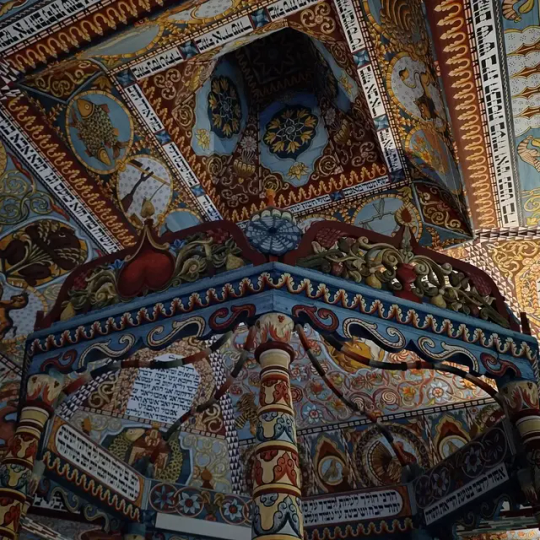
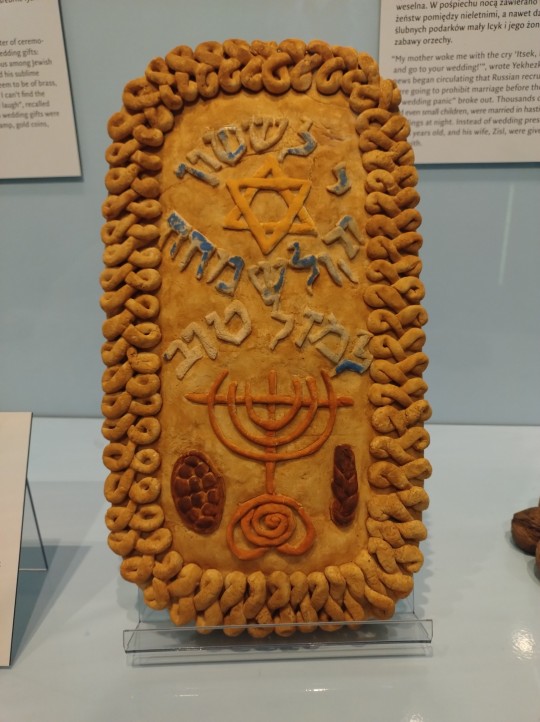
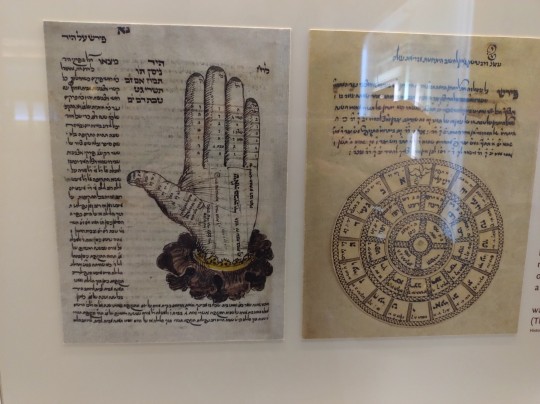
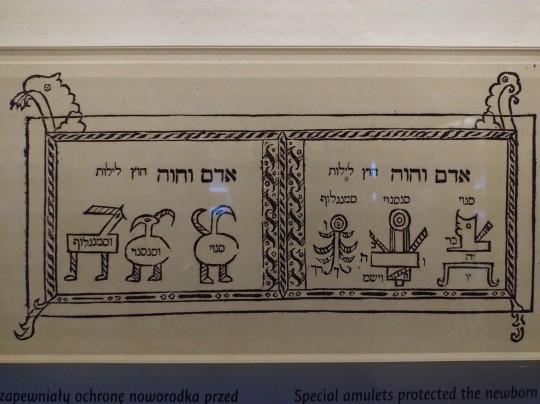
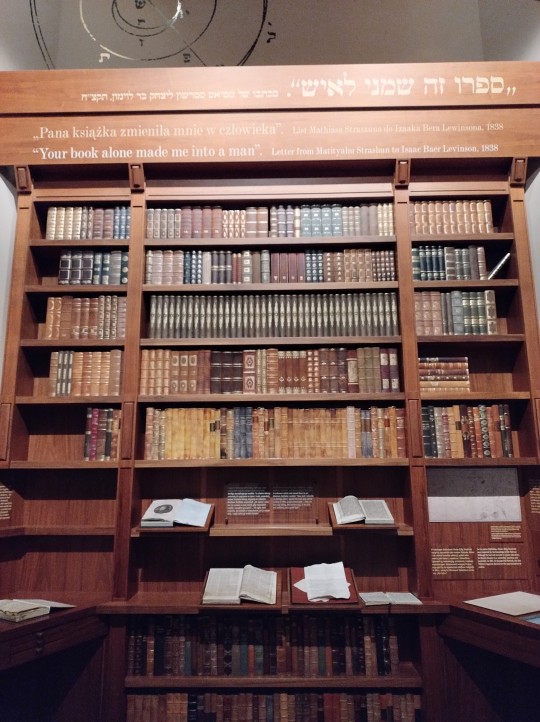
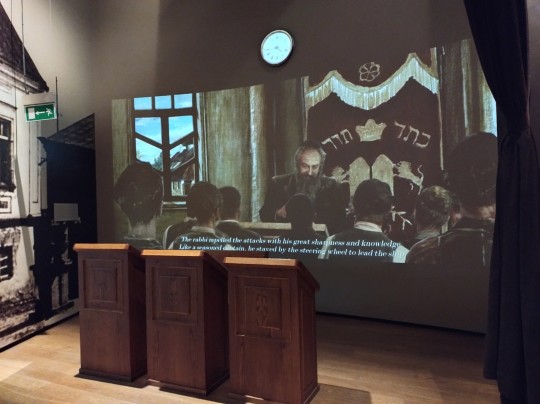
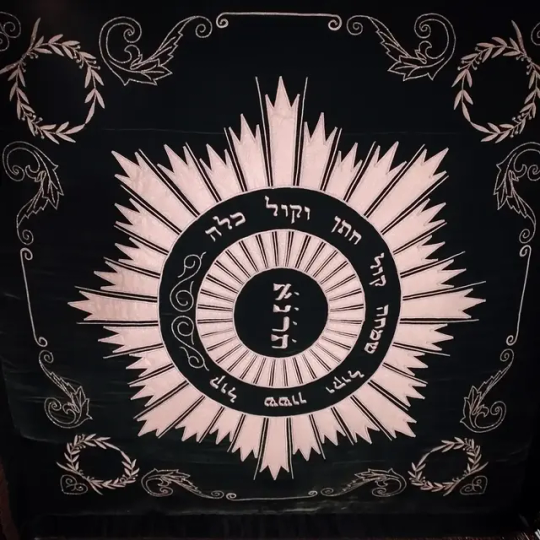
Polin museum of the History of Polish Jews, Warsaw, Poland
It's a great place, very worth seeing
#jidysz#jewish culture#jews in poland#yiddish culture#jewish history#jewish#jews#ashkenazi culture#ashkenazi jews#ashkenazi#synagogue#jeshiva#kabala#jewish amulet#jewish talisman#canopy#jewish wedding#polin#polin museum#warsaw#poland#polish jews#jewish museum
764 notes
·
View notes
Text
Do you know this Jewish character?

#jumblr#jewish characters#kronk#kronk's new groove#the emperor’s new groove#jewish wedding confirmation#word of hashem#Disney has continued to affirm Kronk being Jewish in other media too#such as the Kronk challah and dreidel making guides#also not actually historically impossible funnily enough#the emperors new groove is set sometime between the 1300-1500s#and the first Jews arrived in Peru during the 1500s#i love this man
578 notes
·
View notes
Text

Wedding of Iraqi Jewish Couple, 1960. Photo courtesy of Maurice Shohet
Source: exhibit.ijarchive.org (Iraqi Jewish Archive)
#jumblr#jewish#jews#nesyapost#jewish history#jewish culture#judaism#iraqi jews#mizrahi jews#1960#iraq#wedding#history#mizrahi#Jewish wedding
505 notes
·
View notes
Text
#textie#my sneaking suspicion is jews attend more weddings but im open to being entirely wrong#i did a less optioned poll on twitter once tho#and most ppl said less than 10
628 notes
·
View notes
Text

Happy Tu B'Av / ט"ו באב שמח ! ♥️
A Jewish wedding ceremony under the chuppah. Courtesy of the American Association of Ethiopian Jews (AAEJ Archives Online). via Jewish Women's Archive x
#beta israel#ביתא ישראל#jewish wedding#ethiopian jews#chuppah#judaism#tu b'av#ט“ו באב#uploads#i know this is a little late
35 notes
·
View notes
Text
Bittersweet jewish joy: a jewish wedding on october sixth
#jumblr#jewish joy#personal thoughts tag#i don't think it was done on purpose but. it's still bittersweet#and i really like the couple that's getting married. i'm not going to the wedding i think because i'm not close enough to them#but they're nice people even if we don't see them in shul as often as some of the other families (i get it i just like seeing them around)#what can i say. i like being around jews. and jewish joy. even if it's bittersweet
24 notes
·
View notes
Text

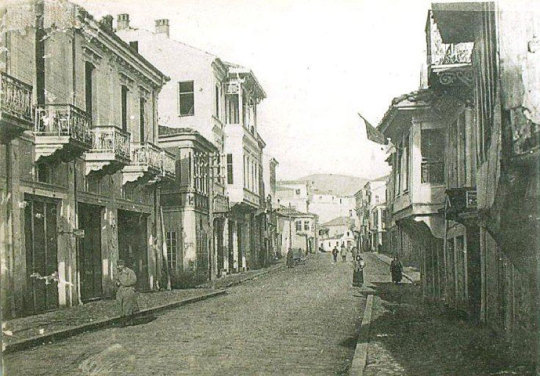
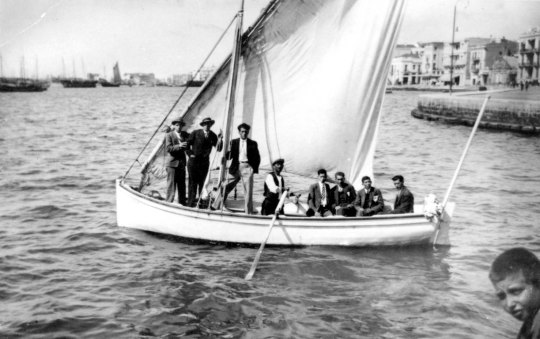
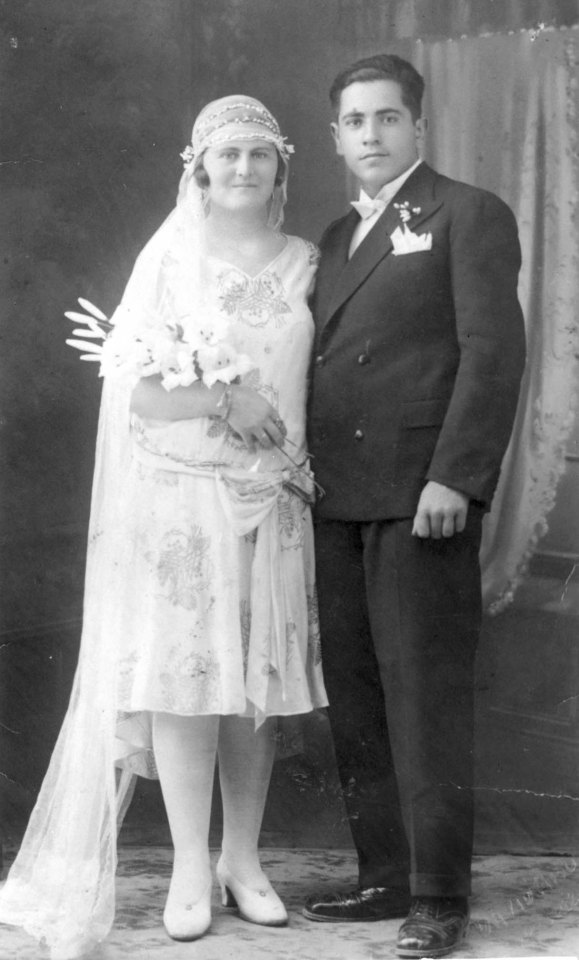
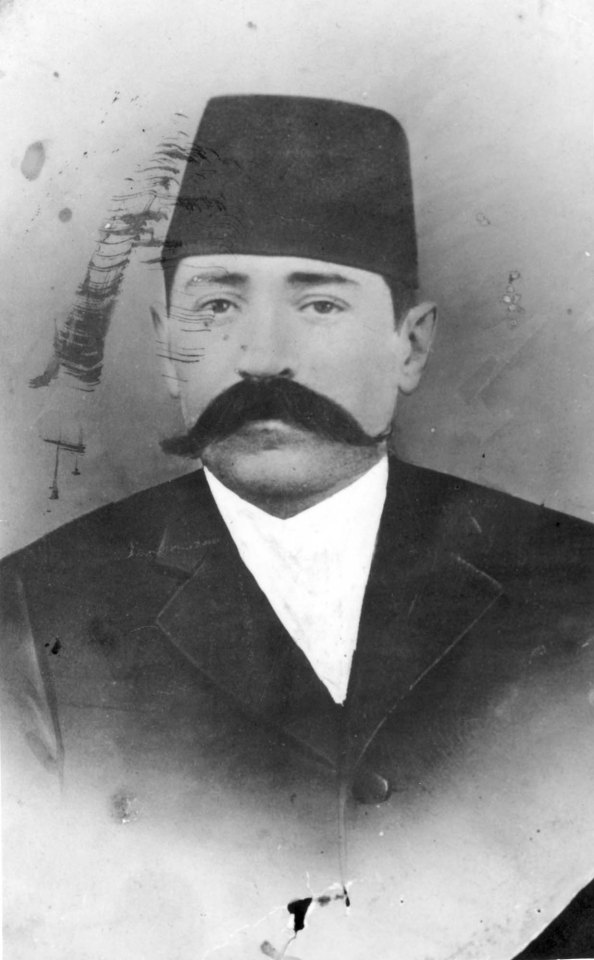
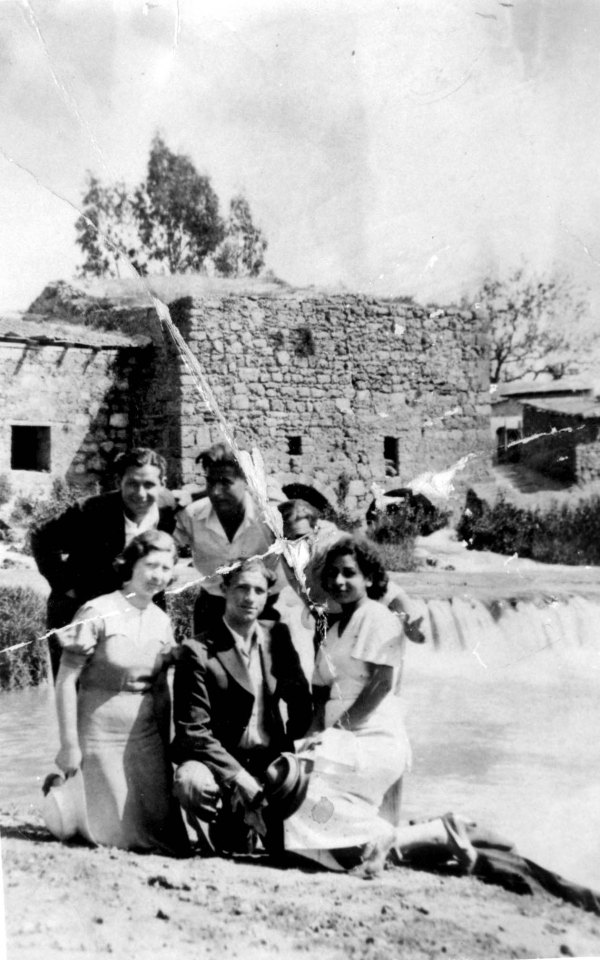
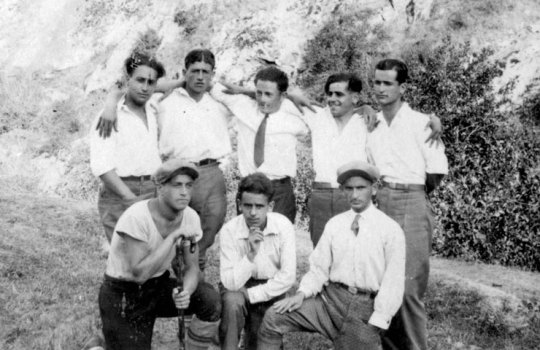
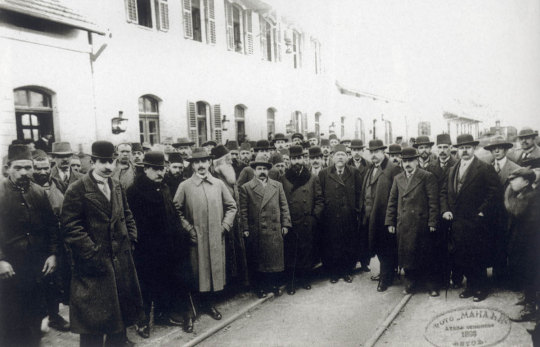


🇪🇸 La ciudad de Monastir, ubicada en la antigua ruta Vía Egnatia, fue conquistada por los otomanos en 1381-1382, comenzando un periodo de dominio turco que duró hasta 1912. Hacia finales del siglo XV, judíos sefardíes expulsados de España se establecieron en Monastir, donde ya residían judíos romaniotes desde tiempos romanos. Los sefardíes formaron dos comunidades separadas, la aragonesa y la portuguesa, con sinagogas independientes que a menudo enfrentaron disputas. En el siglo XVI, Monastir contaba con unas 1,500 casas, de las cuales 200 eran propiedad de judíos. Para 1889, la ciudad tenía 31,257 habitantes, con 5,500 judíos. La comunidad judía en Monastir prosperó gracias a su experiencia en comercio y oficios textiles, estableciendo fuertes vínculos comerciales por todo el Imperio Otomano. A finales del siglo XVI, un incendio destruyó las sinagogas aragonesa y portuguesa, lo que llevó a la reconstrucción de una sinagoga conjunta. Sin embargo, las tensiones entre las dos comunidades persistieron. Durante el siglo XVII, la comunidad judía creció tanto que el espacio en las casas de oración se volvió insuficiente, requiriendo la renta de espacio en casas particulares, una práctica que continuó durante generaciones.
🇺🇸 The city of Monastir, located on the ancient Via Egnatia route, was conquered by the Ottomans in 1381-1382, marking the beginning of a period of Turkish rule that lasted until 1912. By the end of the 15th century, Sephardic Jews expelled from Spain settled in Monastir, where Romaniote Jews had already been living since Roman times. The Sephardic Jews formed two separate communities, the Aragonese and the Portuguese, with independent synagogues that often faced disputes. In the 16th century, Monastir had about 1,500 houses, 200 of which were owned by Jews. By 1889, the city had 31,257 inhabitants, with 5,500 Jews. The Jewish community in Monastir thrived due to its expertise in commerce and textile-related trades, establishing strong commercial ties throughout the Ottoman Empire. In the late 16th century, a fire destroyed the Aragonese and Portuguese synagogues, leading to the reconstruction of a joint synagogue. However, tensions between the two communities persisted. During the 17th century, the Jewish community grew so much that the space in the prayer houses became insufficient, requiring the renting of space in private homes, a practice that continued for generations.
#macedonia#monastir#judaísmo#judaism#judíos sefardíes#sefardíes#judíos romaniotes#dayanim#jajamim#judíos de monastir#calle#boda#boda judía#jewish wedding#matrimonio#siglo 19#segunda guerra mundial#preguerra#antes de la guerra#jóvenes judíos#young jews#jews#belgrado#historia judía#historia sefardí#jewish#jumblr#sinagoga#vía egnatia#imperio otomano
19 notes
·
View notes
Note
Congrats on your upcoming wedding!!
Thank you!
My fiancé is getting annoyed that I keep yelling "Spanakopita" every time I see it on the menu.
I also got them to yell at me tonight because I saw an item on a caterer's menu that was called "Steamship Beef", which is the funniest thing I've seen in a while.
That's totally a Bear Daddy on a steamboat.
7 notes
·
View notes
Text
My dad all year: fairly secular like the rest of us, doesn’t keep kosher, doesn’t really observe Shabbat, the occasional temple service.
My dad on Yom Kippur: *putting on a kippah* hello family yes I am fasting and don’t ask me money questions. I am now extremely devout for the next 24 hours
#mod des#😂😂😂#not super religious jews on Yom Kippur be like#ah shit I better set this year up right#like bruh if G-d is real he can definitely see you eating that bacon and sinning the rest of the year😂#no judgement tho I just think it’s funny how my dad without fail every year#finds G-d but only on the high holidays 😂#I try to do Shabbat every Friday night just as a comforting ritual because I’m pretty agnostic#and I host picnics for all the holidays except this year for new years stuff I’ve just been so busy with the new semester#and a new apartment#and there was a wedding that we got back from late Friday so I couldn’t plan anything for Rosh Hashanah#but anyway my dad does like the whatever the Jewish version of Pascal’s wager is but only on holidays 😂#I can’t fast for medical reasons even if I wanted to tho lmao
27 notes
·
View notes
Note
So, hey. How did you and your family celebrate Passover when you were a kid? How about now?
My Rhode Island aunt and uncle almost always hosted a big family Seder, and it was the absolute best. A good Seder is educational, food-filled, and legit fun—it's a ritual meal that includes storytelling, singing, prayers, and a general focus on including and teaching everyone involved, regardless of age or even whether attendees are Jewish. (If ever you're invited to a friend's Seder, go! Do not bring a challah, which my actually-bar-mitzvahed brother-in-law did once as an attempt at a thoughtful host gift. We still make fun of him.)
And my uncle (the same one who officiated at my wedding, and the wedding of my other sister) may well be the greatest host/leader there is; over the years he compiled from a medley of sources what added up to his own Haggadah (basically the guidebook to the Seder—there are a million published and informal versions working off the same template, with readings and activities and interpretations that can go kid-centric or feminist or traditional or whatever). It was always just insanely fun, and warm, and joyous, with incredible food and an increasing array of baked-in, just-us traditions.
Since I went to college basically down the street from their house, and then lived just an hour away in Boston for so long, that was pretty much the heart of my and my family's celebration most years—right up until Passover 2020, at which point the pandemic negated what had been plans to travel from our new home in Illinois for it, and they also downsized and had their own kids scatter geographically and gain very little ones, so that particular tradition is at best on hiatus now.
But there are fun Seders everywhere—well, the Zoom ones of the pandemic years were a mixed bag, but we've found friends who've make a good go of it, over the years, too, if not quite as an elaborately planned out hourslong celebration as my uncle would do. When I studied abroad in Denmark, Boyfriend and I went to an Orthodox Seder that was in a mix of Danish and Hebrew, for instance—that was novel, and so much of the procedure and the Hebrew was familiar enough to follow along.
Still working on exactly where we'll be for those two nights this year (we haven't really met any Jewish families in Pittsburgh yet to garner an invite, and none of the Reform or Conservative synagogues seem to have community events, which is surprising? And I don't really want to go to Chabad?) but we'll figure something out.
That said, as fun as the Seders can and should be, the rest of Passover is a slog of not eating bread or adjacent products, and experiencing whatever it is matzah does to one's digestive system over the course of a week. It's a meaningful observance, and the fact that the relevant rabbinical boards have stopped including rice and legumes in the "no" column in recent years has been great, but...it's ultimately a holiday recalling the story of the Exodus, and how we were slaves once, so, like, there are some less-fun elements. But the freedom celebration parts usually outweigh that!
#ask me ask me ask me#stpauligirl#passover#pesach#jews!#jewish holidays generally have fairly set observances and the details come down to your family/community/congregation#as well as interpretation and denomination and general religiosity#but basically anyone celebrating passover will be doing some seders and no bread and lotsa matzah#and no it will never stop being amusing how often goyim seem to enjoy eating matzah and how jews *always* eat an assload and do not enjoy i#i'm sure it's because it's an imposed week out of the year and not a novel cracker alternative but anyway#a potentially amusing sidenote:#boyfriend has been in the picture since the beginning of college and always came to the family seder thereafter#the first time he remembered that his mom told him not to go to someone's house empty-handed and procured (in lieu of flowers or whatever)#a moses action figure which then graced that seder table proudly from 2006 onward#'moshe rabenu' also made an obvious and necessary appearance at our wedding#and another tidbit for the jews here#the first covid seder i'd seen someone do this on the internet somewhere#and so for the zoom seder made a separate account labeled 'eliahu ha'navi' and had it request admittance at the appropriate moment#got a BIG laugh. still pleased about pulling that off.
12 notes
·
View notes
Text

Bedeken
#jewish#gay#queer#bi#me#trans#jew#jew stuff#judaism#jewish wedding#gay pride#gay wedding#gay jewish wedding
33 notes
·
View notes
Text
not very related but every time I think about LGBTQ progress I think about the equal marriage act (the most high profile legal change since I've been politically aware)
and then I think about sitting with my housemate (later girlfriend. later ex) on her bed in 2012 watching and livetweeting the equal marriage debates in parliament.
and then I think about the person who tweeted, in response to a point being made about the diversity of opinions on the matter in the Christian faith and specifically the firm pro-equality stances taken by the Quakers and the Unitarian Church; "Unitarians aren't real Christians and Quakerism is witchcraft"
"Quakerism is witchcraft" has lived rent-free in my mind for over a decade. my two favourite callbacks to make with friends about my religion are "Quakers ritually bathe in oats" and "Quakerism is witchcraft."
#red said#i can never remember who the other church was bc i mix up unitarians and united reform#even though the urc dragged its feet on same sex marriage into 2017#anyway i don't think it's just my internal perspective that the Quakers were brought up more during the debate#i think maybe cause the Unitarians had been on board for longer and the Quaker commitment came in 2009#also bc Quakers are a relatively politically high profile group#like the three faith groups that came up throughout the debate as specifically pro equal marriage#were the Quakers the Unitarians and the Liberal Jews#who i think were the three who most unilaterally took equal marriage as organisational policy#for Quakers in 2009 we agreed to just start recording all marriages equally anyway and sending the paperwork to the government#even though they didn't have the legislation to recognise it#which is a thing we could do bc there's a peculiarity in law stemming from 18th century ghettoisation of Quaker communities#which means that i think uniquely among churches in England? we appoint our own registrars rather than having to use state registrars#and Quaker marriage registration uses different paperwork and processes decided by the Quaker National Meeting#so we write and witness our own paperwork then send it off to the government to make it legally recognised#whereas all other religious weddings you have to bring a civil registrar to fill out a standardised registry form#so. we had a legal capacity that other groups didn't to just say Hey Fuck You We're Going To Marry Them Anyway#and 2009-2013 the government just had to deal with getting sent marriages that were validly registered but not legally recognisable
21 notes
·
View notes
Text
i suppose i understand that people who are getting married in two days are living by a different moral code than the rest of us but it really is crazy to be invited last minute to a wedding on thursday morning via a whatsapp voice message in which it is revealed that my best friends were invited some weeks ago and i'm only a replacement for a cousin who couldn't make it last minute
#i do not begrudge my friends their invites because they were always closer to the groom (college friend) than i was#but do we have to make ME feel like a shitty backup in the middle of a tuesday? bruh i'm just trying to do my latin homework#fortunately i can't go anyway because i don't think i could deal with the layers of cognitive dissonance#(eg my best friend had a protracted fling with the groom in our younger years; the bride is a woman he only met a year ago; the wedding is#going to include gender-separated celebrations bc orthodox jews; i am apparently a backup guest)#crazy stuff!!!!#rare pic of me in the wild
5 notes
·
View notes
Text

happy pride to one of the funniest schmear posts ever
#'not everything is about the jews get over yourself' is number one of all time but this is rly up there for me#txt#shira you should really have your not-a-wedding in cyprus. for the bit
9 notes
·
View notes
Text

Leo Schutzman (American, 1878 – 1962), , The Wedding, c. 1960.
"This painting features many elements of a traditional Ashkenazi wedding celebration, including the garb worn by the male attendees, the celebratory circle dancing, and the wedding canopy depicted at the top of the painting." x
#leo schutzmann#american artist#american art#jewish artist#jewish art#ashkenazi jews#ashkenazi culture#ashkenazi wedding#jewish wedding#jewish culture#uploads#painting#naive art
4 notes
·
View notes